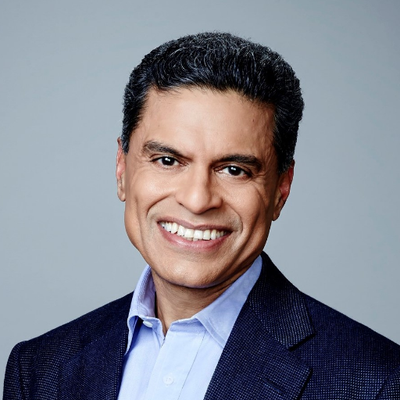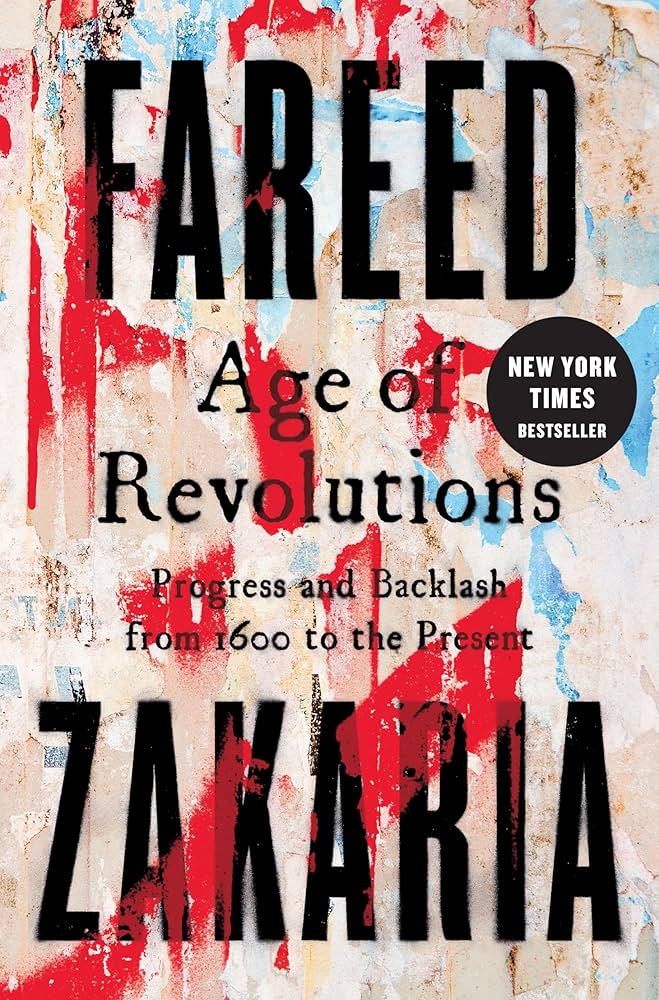Fareed Zakaria: We’re living in an age of revolutions
The CNN host compares our current moment to previous transformative ages
Key Takeaways
- Fareed Zakaria’s new book argues we’re living in an age of revolution.
- A combination of forces, including globalization, the rise of tech, and identity politics, is transforming our world, the author noted.

We could be living through one of the most revolutionary periods in modern history, according to Fareed Zakaria, as populist anger, economic and technological disruptions, and heightened global conflicts all convene.
The Washington Post columnist and CNN host makes that argument in his new book, Age of Revolutions: Progress and Backlash from 1600 to the Present. In it, he explores the historical transformational moments, including the French and Industrial Revolutions, that shaped the world we live in today and present-day revolutions driving our culture. He spoke about his book and findings at a recent event held at the Johns Hopkins University Bloomberg Center.
Here’s what to know about the current revolutions Zakaria identified:
- Digitalization and Globalization Transform the Economy
The globalization that took place over the last three to four decades has been more powerful than any preceding global integration, Zakaria said. Between 1985 and 1995, 3 billion people entered the global economy and trade among countries became far more common. Simultaneously, communications technologies, such as the Xerox machine, were emerging. The combination of globalization and new digital technology turned the economy upside down.
“And now, of course, you have the complete transformation of the economy into a digital economy, and the digital economy really supersedes the real economy,” Zakaria said. “All the real value in the economy now is in the digital side, and now that digital economy is going to be transformed by artificial intelligence.”
- Identity Politics Shapes Global Democracies

Zakaria argued that the traditional debate between the left and the right—where the left advocates for more state involvement, higher taxes, and redistribution, while the right seeks less government and lower taxes—has been upended.
On the fundamental issue of economics, we have gone from a system on the spectrum that was left versus right to open versus closed. The transition to open versus closed involves many more issues of identity and culture that are more difficult to navigate than economics, raising critical questions about trade, diversity, immigration, and multiculturalism.
“It’s easy when the debate is about money; one side wants to spend $100 billion and the other side wants to spend nothing. Well, there’s a number between those two, right?” Zakaria asked. “How do you find the number on gay marriage or on abortion or on the idea that America is being fundamentally transformed into a multicultural society?”
- Shifting World Order
Zakaria asked whether a coalition of liberal-minded states, such as the U.S., nations in Europe, and Japan, can effectively maintain order in today’s polarized environment. Unlike in the past, where a hegemonic power could impose its will, he suggested that today’s world needs collaboration among diverse actors with varying interests.
“How do you manage a world, and how do you create a world order, in the midst of multiple actors, all of whom want to be heard, all of whom want to participate in the system?” Zakaria said.
He argued that the United States may no longer have the capacity to uphold the liberal world order alone and advocated for nations to work together, balancing their interests while adhering to liberal principles.